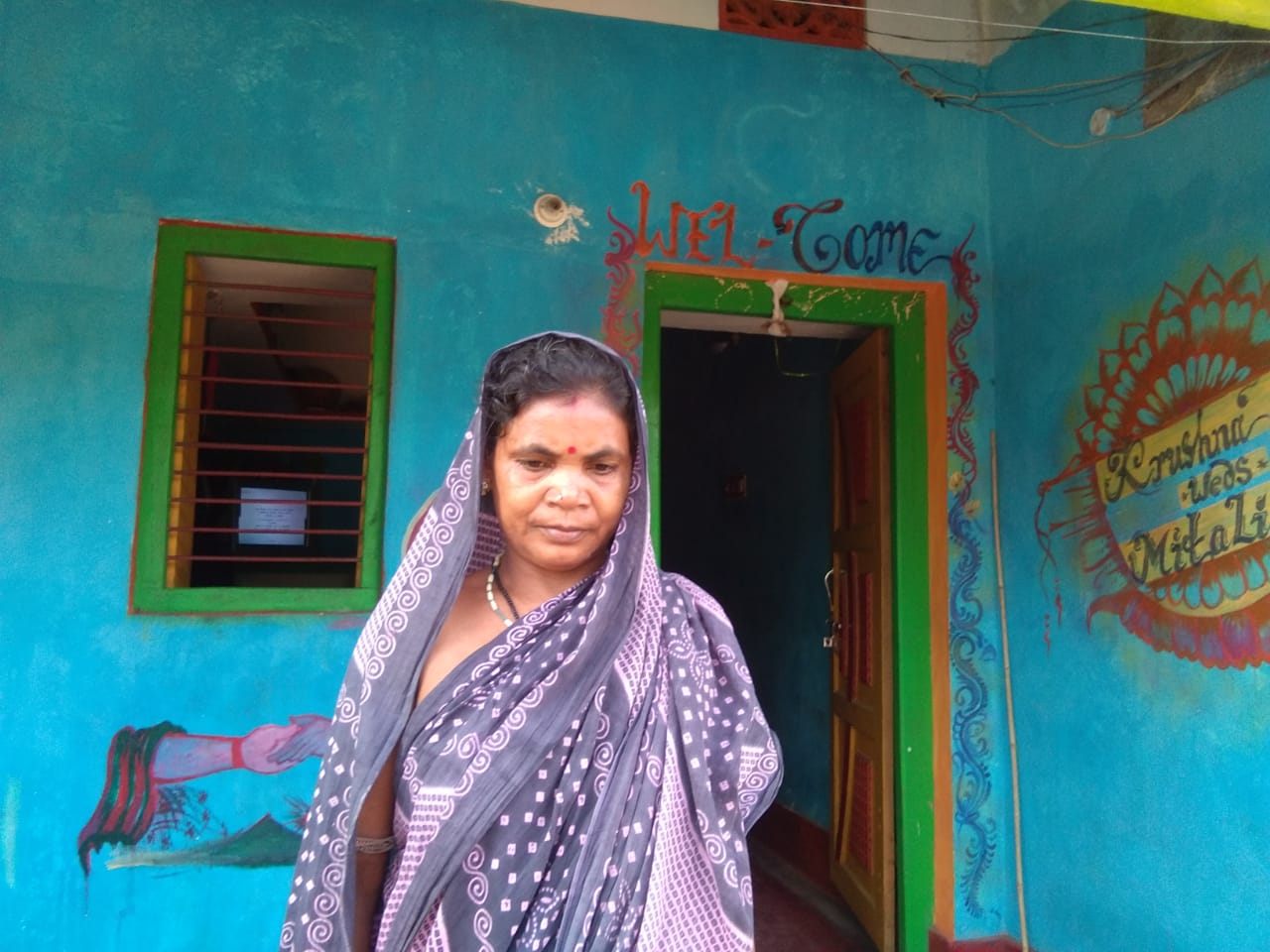Harnessing community ownership for total sanitation
StoryBy Sangita Patra
14 July 2020
The rural community of Banimari learns about identifying biodegradable and non-biodegradable waste, its segregation and disposal to create a clean village environment.

Tara Malik fought for a garbage-free Baniamari, and today oversees the waste management practices in her village.
Photograph by Bidulata Dhal
In 2005, Gram Vikas implemented a sanitation and water supply project at Baniamari village in Ganjam district. The construction of toilets and bathrooms in all fifty homes of Baniamari ended the practice of open defecation once for all. However, daily waste management continued to be a bottleneck towards achieving total sanitation.
Gram Vikas wanted the village community to realise the second generation of Water, Sanitation, Hygiene (WASH) issues and trigger the demand for its bottom-up solutions. After a series of meetings with Gram Vikas, the community of Baniamari was convinced about implementing holistic measures for waste management.
In May 2019, fifteen members of Gram Vikas visited SAAHAS, a Bangalore based not-for-profit organisation working on waste management and learnt strategic approaches and best practices of waste management. The exposure visit helped Gram Vikas to plan for waste management strategies in Baniamari.
Gram Vikas brought Anganwadi workers, ward members and Gaon Kalyan Samiti (GKS) members in the loop to address the challenge of waste management. Various awareness sessions were organised with them and the members of the Village Development Committee (VDC) on segregation of waste at the household level, collection and disposal of waste.
The villagers were educated on identifying biodegradable and non-biodegradable waste and its disposal mechanisms. Special efforts were made to inform the villagers about implications of not managing kitchen and bathroom waste and solid waste on the village environment.
The VDC arranged sanitation funds from the budget of Gaon Kalyan Samiti (Village Welfare Committee). The funds were used to provide a waste bin in every kitchen and a toilet cleaning brush for each household as well as buying phenyl and bleaching powder for community use.
One of the key challenges was to make Baniamari polythene free. Every household was given a separate bag to put polythene, plastic wrappers, and sachets. They would take the waste a kilometre away. Other wastes such as glass bottles and plastic containers were collected and sold to vendors for toffees or to scrap dealers and they bought pens and paper with the money.
Gram Vikas chose and trained a community of WASH+ cadres who conducted periodic transect walks within the village to monitor the waste disposal habits of the villagers. They reported their findings to the women members of the self-help group (SHG) assigned by the VDC to oversee the implementation of the waste management practices.
The team also ensured that every household is adhering to the practice of channeling grey water (wastewater from kitchen and bathroom) into their backyard garden. These accrued efforts resulted in the families disposing of all biodegradable waste in a compost pit and not throwing it outside the home.
Tara Malik, an SHG member overseeing the waste management practices in Baniamari explains that everyone wants spick and span homes without a trace of garbage. Little do they realise that the garbage would find its way on the village, affecting the health of one and all.
Tara is all praise for Gram Vikas for building a holistic strategy to formalise waste management practices at the individual and community level and installing a community-led system for its sustenance.
Today, Tara Malik can see the change and feel it too whenever she walks in a garbage-free Baniamari.
Neighbouring villages of Lundriguda and Betajhari have initiated discussions with the Gaon Kalyan Samiti to adopt Baniamari’s model of waste management.
Gram Vikas' integrated water sanitation programme provides for three taps to every household in a village, including one in the kitchen.
Photograph by Ajaya Behera
ACKNOWLEDGEMENT
Bidulata Dhal, Field Supervisor with Gram Vikas, helped in data collection. Priya Pillai edited the story.
ABOUT THE AUTHOR
Sangita Patra is a Thematic Manager with Gram Vikas.
RELATED BLOGPOSTS
No school nearby, so they built one themselves
Facing distance and neglect, Adivasi families in Odisha built their own tuition centre for children.
Turning canal overflow into crop success
Small farmers unite to secure water and improve crop yields with a check dam.
When the rains took their goats, they found a way to rebuild
In a village in Odisha, Keshab and Pramila’s goat shed brought healthier animals, steady income, and a model others want to learn from.